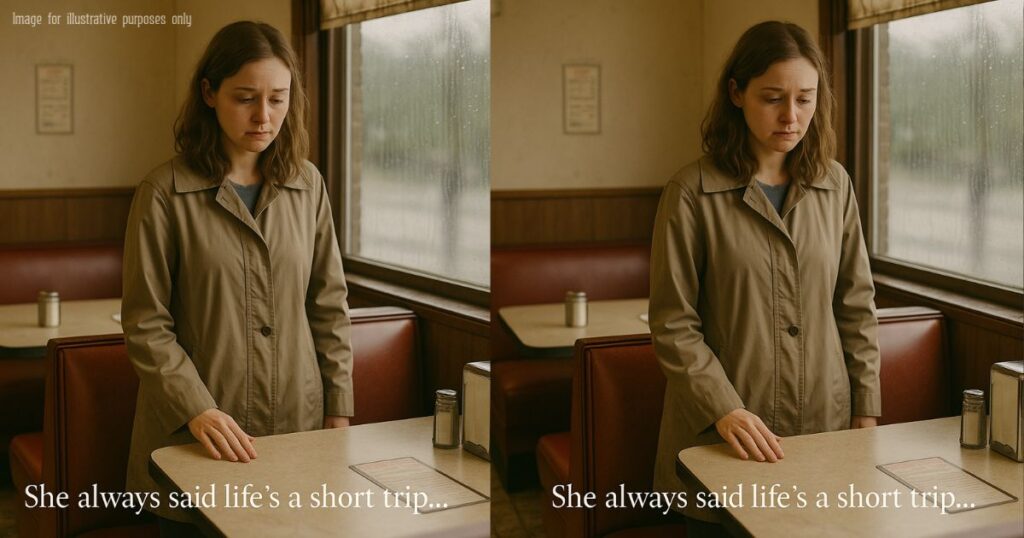The Girl at Table Seven (Part 2)
The pancakes went cold.
She didn’t touch them. Neither did I.
We just sat there, me and Maddy, in the quiet hum of Dot’s Diner. Outside, the morning drizzle had turned to a slow, silver rain, tapping at the window like someone trying not to interrupt.
I’d seen grief before. Folks cry into their coffee, folks shout about God or fate or bills they can’t pay. But what Maddy had—that stillness—was different. Like her mama had taken the wind out of her lungs but left her walking anyway.
She ran her finger along the edge of the plate. The whipped cream had begun to melt.
“I used to think she was just tired,” Maddy whispered. “Like all moms, you know? Grocery bags, car payments, missed calls. But now I wonder if she knew all along. That it was gonna be short.”
“She never looked tired in here,” I said.
Maddy’s lips curved. “She always said this place made her forget.”
“She wasn’t the only one,” I murmured.
Truth was, Dot’s hadn’t changed much since they stopped coming. Same creaky booths, same chipped mugs, same lightbulb flickering over the pie case. Only difference was how much quieter the place had gotten. The world moved on, but Dot’s didn’t. Maybe that’s why people like her mama came back. Maybe that’s why Maddy had.
“She never remarried,” Maddy said, not looking up. “Never even dated. I asked her once why. I was thirteen, angry about something. I said she was lonely. You know what she said?”
I shook my head.
“She said, ‘Baby, there’s not a man alive who makes better company than pancakes and quiet.’”
I laughed, and it came out rough. “She wasn’t wrong.”
Maddy reached for her coffee. It had gone lukewarm, but she sipped anyway. Then, slowly, she reached into her bag again and pulled something out—folded linen. Pale blue with white stitching. She laid it carefully on the table.
It was a scarf.
“I think she gave you this once,” Maddy said. “Christmas, maybe? Found it in her keepsake box. With your name on a little tag. ‘To Ray. Thanks for the warm booths.’”
I stared at the scarf like it might vanish. I remembered the gift, of course. I’d put it away, never wore it. Not because I didn’t like it—but because I didn’t want anything happening to it. Funny how we protect things until they’re forgotten.
“She really did keep everything,” I muttered.
“She called you ‘the last good man in town,’” Maddy said, smiling softly.
I looked out the window. “Then the town was in worse shape than I thought.”
We both went quiet.
Then something strange happened. Maddy reached into her coat pocket and pulled out a manila envelope. Thick. She slid it across the table toward me.
“What’s this?” I asked.
She looked serious now. “After she passed, I went through her paperwork. She’d written a letter. Dated last year. Said if anything ever happened, I was to give this to you.”
I stared at the envelope.
“You sure?”
“She was.”
My hands weren’t steady as I opened it. Inside: a letter, handwritten in that slanted, looping cursive you don’t see much anymore. And a check.
A check for $10,000.
My mouth went dry.


